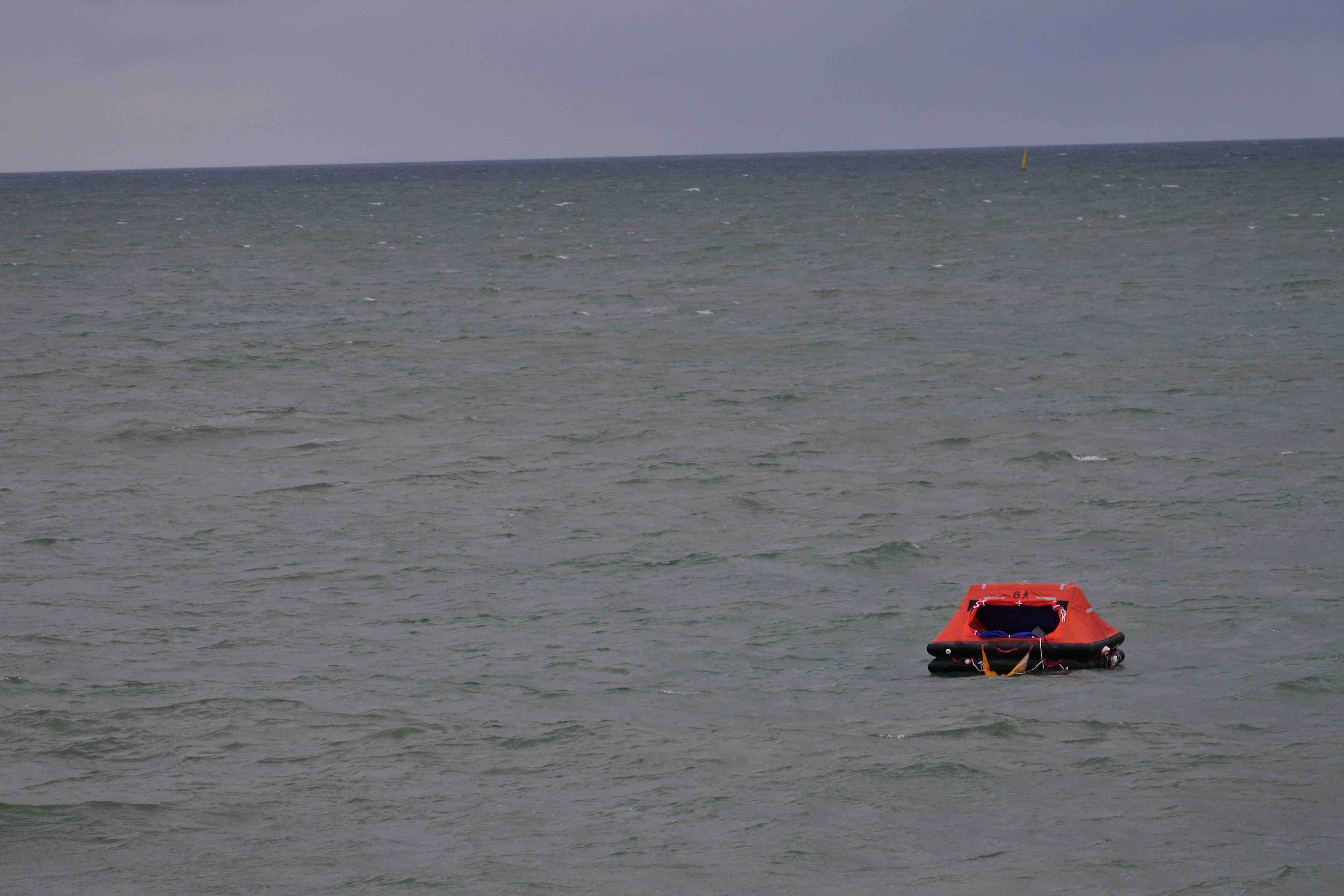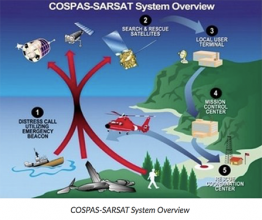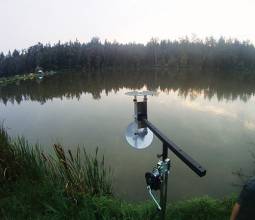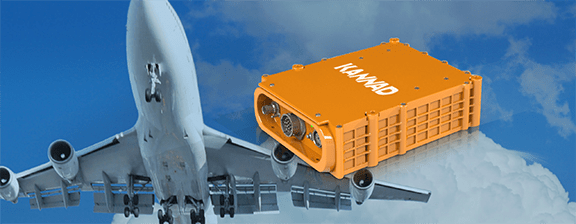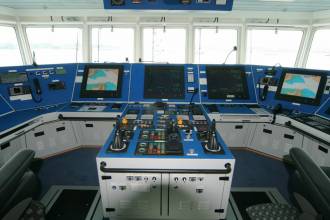A live demonstration in the North Sea used the Galileo Search and Rescue (SAR) service to initiate an emergency rescue in three and a half minutes after a “person in distress” operated her Galileo-enabled personal locator beacon (PLB) from a small life raft, adrift on the open water.
Operation Shark Bait showed off the capabilities of the new service. Triggered by a 406MHz Cospas-Sarsat PLB, the beacon signal was detected by the search and rescue payload aboard multiple Galileo satellites orbiting in space; these in turn pinpointed its source on Earth’s surface. This data was relayed to a control center in the French space agency CNES in Tououse, then passed to the nearest national rescue center: Belgium’s Maritime Rescue Coordination Centre, in Oostende harbor.
Detection, localization and notification process took three minutes 32 seconds, at which point the rescue began. A fast rescue boat ORKA R6 was dispatched to the spot on the open sea and a NH90 Cayman SAR helicopter from the Belgian 40th squadron also scrambled to transfer “injured” Tara Foster, an Australian journalist, to a hospital.
The location, with an initial accuracy of 100 meters, is provided by the Galileo receiver inside the PLB to the Galileo satellites in view. The Galileo satellites then forward this information to the Cospas-Sarsat infrastructure, where the position is validated.
Earlier this year, Orolia announced the launch in Europe and the United States of an upgrade to its McMurdo FastFind 220 and Kannad SafeLink Solo personal location beacons (PLB) to include the Galileo, under the auspices of the European Commission program 2020 HELIOS.
As well as the 23 SAR payloads currently hosted in space aboard Galileo satellites, with more to come, the EU provides ground infrastructure including MEO Local User Terminals (LUTs) to pick up the signals relayed from the satellites. These LUTs are not just in Europe, and a fourth facility is to be opened soon on La Reunion island to improve coverage across the Indian Ocean.
A Galileo-enabled Return Link Service (RLS) was also demonstrated a few days after Operation Shark Bait. This sends an acknowledgement to the victim that their distress signal has been received and help is on its way. This new ability to provide reassurance should deliver a valuable psychological lift to victims and further boost survival rates.
Further information on both services is available at www.gsa.europa.eu

